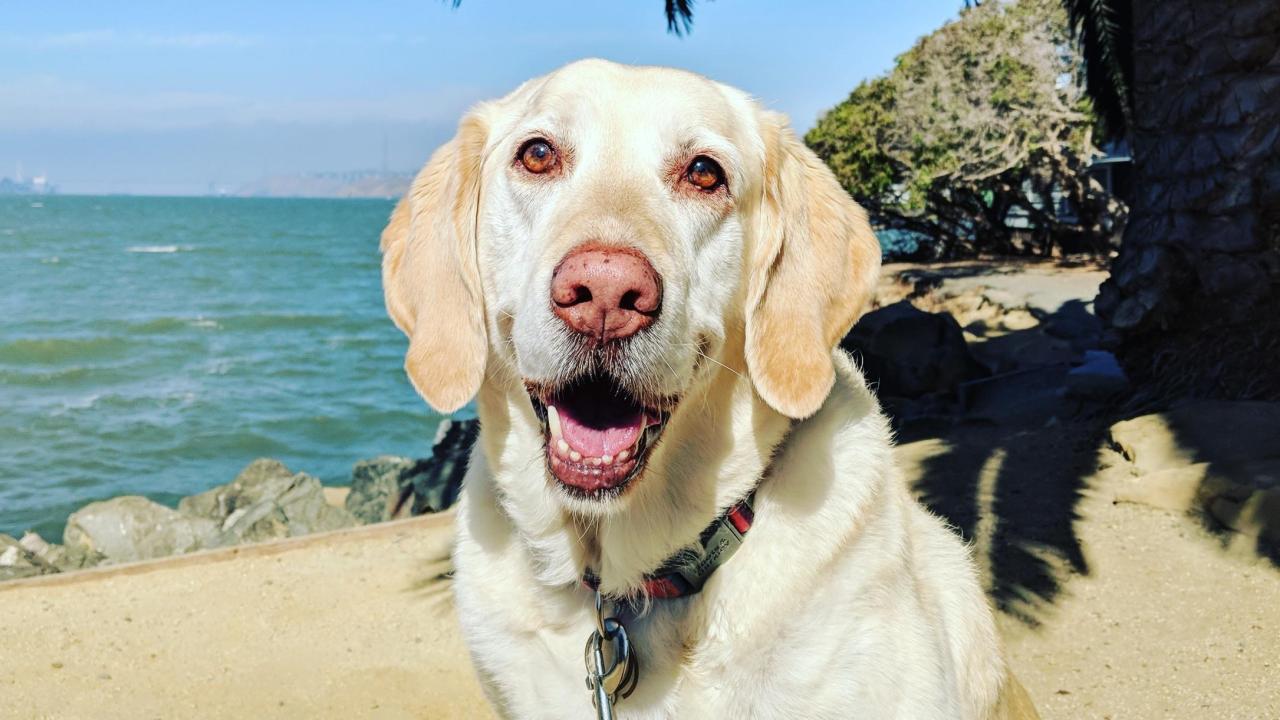
Philanthropic Partnership Helps UC Davis Advance Cancer Care
The UC Davis School of Veterinary Medicine recently received an additional $75,000 grant from the Petco Foundation to continue its support of pet cancer treatments at the school’s veterinary hospital.
With an initial grant of $350,000 in 2016 and a second grant of $225,000 in 2018, this latest round of funding brings Petco’s total donation to UC Davis to $650,000. The grants help support treatments for domestic companion animals suffering from cancer. The project is designed to support pet parents of modest means or pet parents whose pets provide a service to others.
“The UC Davis veterinary hospital’s Oncology Service is a robust practice with a high caseload and referrals from throughout California as well as neighboring states,” said Dr. Kathrine Skorupski, professor of clinical medical oncology. “Our clients come from all walks of life and financial situations. We strive to offer multiple options to treat cancer to match each client’s individual goal and financial limitation. Some clients wish to pursue cancer treatment (surgery, radiation, chemotherapy, immunotherapy, or palliative care) for their pets, but do not have adequate financial resources. In these cases, the Petco Foundation grants have helped us treat dozens of patients whose families normally might not have been able to afford it. We are hopeful that these treatments will increase lifespan in these pets, but also improve or help them maintain good quality of life.”
UC Davis is one of 11 universities to be awarded the additional $75,000 grant. The other ten institutions to receive funding from Petco over the past four years include the veterinary schools at Colorado State University, Cornell University, Louisiana State University, North Carolina State University, The Ohio State University, Texas A&M University, the University of Florida, the University of Pennsylvania, the University of Tennessee, and the University of Wisconsin.
“The Petco Foundation is proud to support organizations like the UC Davis School of Veterinary Medicine that are investing their efforts in the fight against pet cancer,” said Petco Foundation President Susanne Kogut. “Not only are these funds changing the lives of pets and pet parents, but the grants improve the outlook for our veterinarian professionals who can help even more pets when costs might otherwise preclude such treatment.”
UC Davis also has an active clinical trials program aimed at identifying promising new ways to diagnose and treat cancer in pets. Some pet owners are eager to have their pet participate in a trial but lack the financial means to do the necessary qualifying screening tests. The school has been able to utilize these funds to cover screening costs, helping to make trial participation possible for all interested clients and their pets.
To date, the Petco Foundation has awarded more than $5 million to these 11 universities to help fight cancer. Since 2009, the foundation—in partnership with Blue Buffalo—has invested more than $16 million overall to treat cancer in pets.
The grants have helped UC Davis treat animals like Izzie, a 6-year-old female yellow Labrador retriever, whose owners were devastated to learn that a tennis ball-sized tumor growing on her head was cancerous. Izzie’s primary veterinarian and a second opinion both offered palliative care as the best option, not giving her very long to live. Not wanting to give up, her owners sought out another opinion with the oncology specialists at the UC Davis veterinary hospital. After meeting with Izzie’s new care team, the owners decided to enroll her in oral chemotherapy treatments meant to inhibit the growth of mast cells and cause cell death. After several bi-weekly treatments, Izzie’s tumor diminished to an immeasurable size. Unfortunately, Izzie’s tumor returned a year later, but it was small enough for surgery to be a safer option than before. UC Davis veterinary surgeons worked with Izzie’s oncology team to successfully remove the tumor with no complications. Now, several years later, she continues to thrive.
# # #
